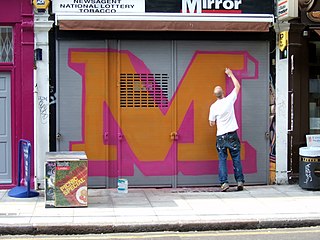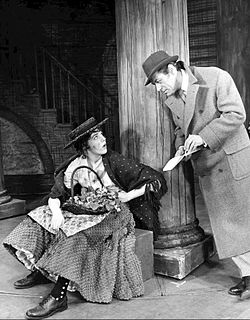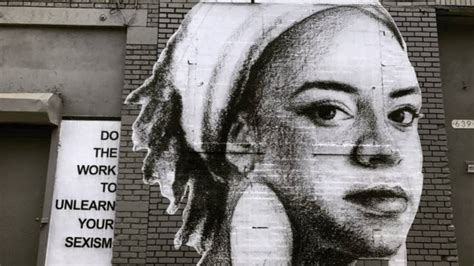A Quote by Ben Eine
Street art, unlike graffiti, adds to the environment and is a positive experience for the artist and community.
Quote Topics
Related Quotes
Traditional graffiti writers have a bunch of rules they like to stick to, and good luck to them, but I didn't become a graffiti artist so I could have somebody else tell me what to do. If you're the type who gets sentimental about people scribbling over your stuff, I suggest graffiti is probably not the right hobby for you.
I was worried that I, the artist Morimura, would have conflicts with the participating artists and develop a strenuous relationship with them. But the actual experience was completely the opposite. The artists accepted my requests rather positively, because it came from a fellow artist. I strongly feel that the fact that my being an artist avoided the usual curator vs artist tension, and led to creating a positive atmosphere as well as developing a solidarity amongst artists and building a community for artists.
The Broadway community is unlike any community in show business and it is unlike any community in the world. When you come into the Broadway community they open the door and they say "welcome". Not only do they do that, but when times are really tough and horrendous things have happened and really tragic things - the Broadway community shows up! And they say "how can we help?".
Exhibitions of minority art are often intended to make the minority itself more aware of its collective experience. Reinforcing the common memory of miseries and triumphs will, it is expected, strengthen the unity of the group and its determination to achieve a better future. But emphasizing shared experience as opposed to the artist's consciousness of self (which includes his personal and unshared experience of masterpieces) brings to the fore the tension in the individual artist between being an artist and being a minority artist.
Men who are offenders of street harassment and women who experience street harassment can walk by and feel something about it, because it's out there in the environment where the harassment actually happens. So it's a lot more powerful than an oil painting that's stuck in a gallery or under my bed or in my studio where only a couple of eyes are going to see it, as opposed to it being in an environment where it could possibly effect a change.
Having a child is the polar opposite experience of the awards season experience. The awards-season experience requires you to be out in the community, in the heart of the community, at the nucleus of the film community in a really committed way for about a six-month period of time. Having a child requires you to nest, to be in your home, and to create and make your home and environment that is one that is potentially very welcoming and nurturing for a child.






































